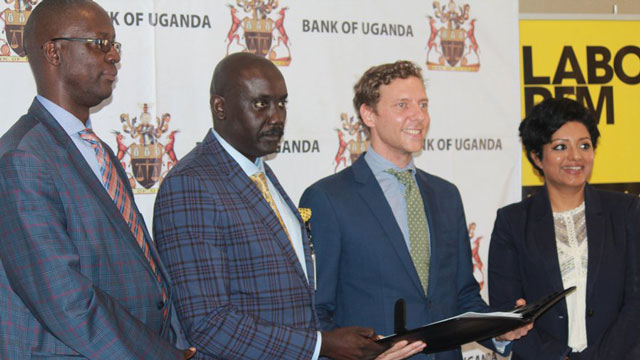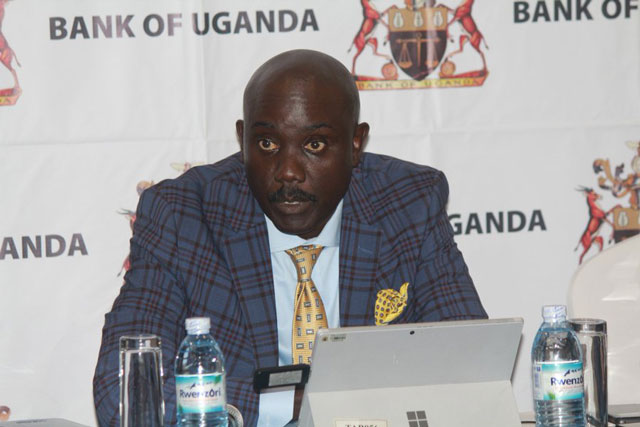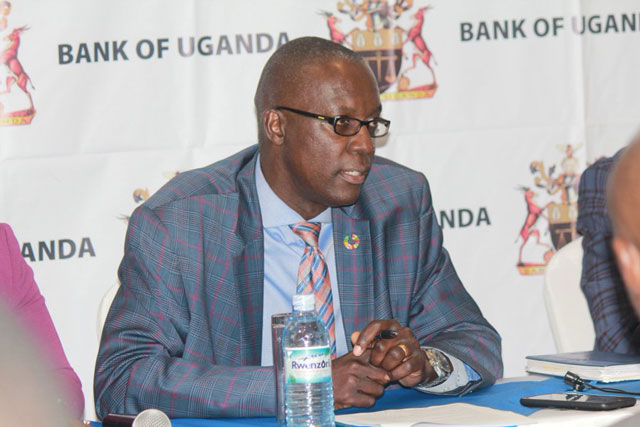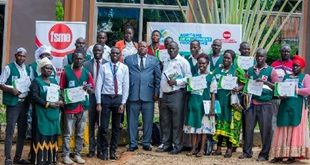
Kampala, Uganda | THE INDEPENDENT | Bank of Uganda (BoU), in collaboration with Uganda Bankers’ Association (UBA) and Financial Sector Deepening Uganda (FSDU) today signed a landmark contract with fintech company Laboremus Uganda to develop a digital ID verification system to be used by all banks and other licensed financial service providers in the country.
The development means licensed financial service providers can speed up identity authentication processes, cut costs of previous length manual processes. This, it is expected, will increase reach particularly to previously unserved and underserved customer segments especially people living in rural areas or in the diaspora.
Furthermore, it will be an important building block for enhancement of existing electronic channels like agent banking and other innovation within the financial services sector.
“We are leveraging fintech to increase the access of financial services to a cross section consumers,” said Wilbrod Owor, Executive Director of the Uganda Bankers Association when the the partnership was launched at a press conference at the Golden Tulip Hotel in Kampala today.
Bram van den Bosch – Managing Director – Laboremus Uganda added that, “This system will be designed and customized to fit Uganda’s needs and is based on proven and tested systems in place.The system will make a digital track record of verified accounts and National IDs.”
“Data and Information associated with specific customers or groups can be used to accurately profile them and empower providers to design financial products and services that best suit the financial needs of all.”
BOU reassures
The system is to function as a shared E-Gateway and will be hosted at Bank of Uganda. It will interface with and use NIRA’s existing records, as well as the National ID card system, to help banks verify the identity of existing and prospective clients in account opening and transaction processing among others. The system will offer a secure, multi-factor digital authentication that will be available to all companies in the financial services sector.

“Bank of Uganda will continue to provide the enabling legal and regulatory framework for the financial sector to thrive based on our recognition of the importance of digitizing financial services, ” said Dr. Twinemanzi Tumubweine Executive Director Supervision BOU.
“Absence of a flexible and cost effective means of verifying the identity of financial services customers has therefore been a major constraint to financial inclusion and credit growth in Uganda.”
He urged financial institutions to ensure that strict Know Your Customer (KYC) practices and customer due diligence procedures are ingrained in their operations. This includes authentication of the National Identification through the portal, he said.
The partners
Uganda Bankers’ Association, is an umbrella organization for licensed financial institutions supervised by Bank of Uganda. UBA was established in 1981 and is currently made up of 35 members (25 Commercial Banks, 2 Development Banks and 8 Microfinance Institutions and Microfinance Deposit Taking Institutions).

Financial Sector Deepening Uganda (FSDU) works to promote greater access to financial services in Uganda. FSD Uganda commenced operations in early 2015.
FSD Uganda’s overall goal is to develop sustainable improvements in the livelihoods of poor people through reduced vulnerability to shocks, increased incomes and employment creation. Its overall purpose is to increase access to financial services for poor rural and urban people, along with micro, small and medium enterprises (MSMEs).
“Digitizing the customer verification process will simplify customer acquisition, increasing the profitability of reaching more customers with formal financial services,” said Rashmi Pillai – Executive Director FSD.
Laboremus Uganda creates financial technology solutions for clients in East Africa and Europe. Some of its key clients are dfcu Bank in Uganda and in SEB and Pareto Securities in Europe. Since 2016, it has also developed its own financial inclusion initiatives to leverage its know-how and technologies to help bring financial services to the underbanked in Uganda.
 The Independent Uganda: You get the Truth we Pay the Price
The Independent Uganda: You get the Truth we Pay the Price


